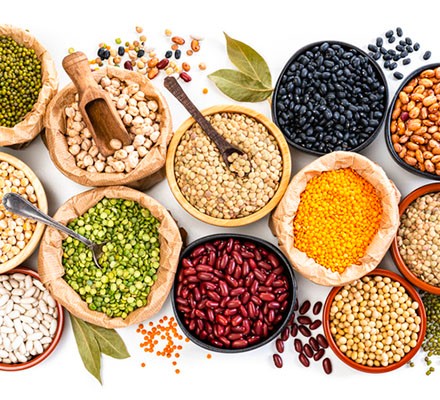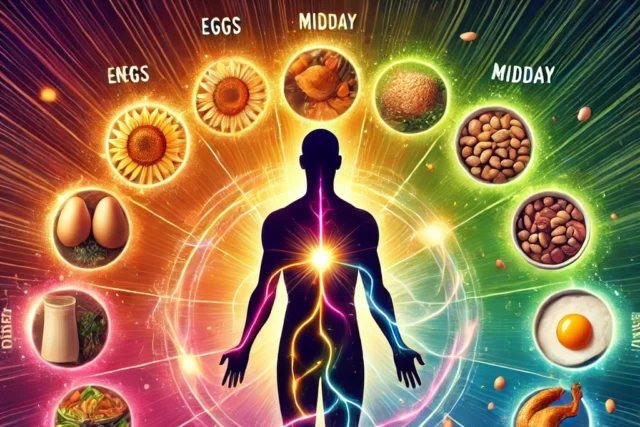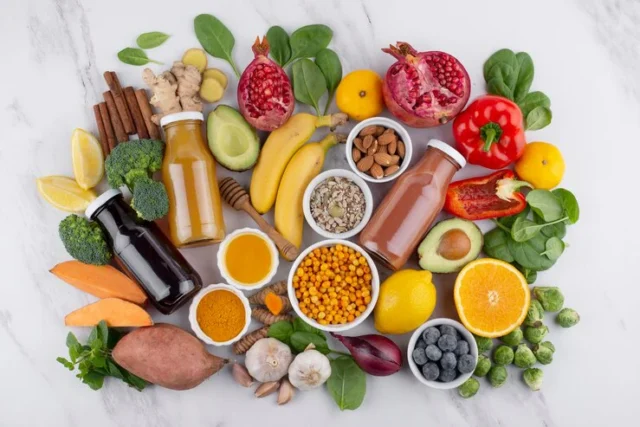Introduction
Vegan protein powders have become an essential part of the modern health and fitness world. Whether you’re following a plant-based lifestyle, managing dietary restrictions, or just seeking a cleaner protein source, vegan protein powders offer a versatile solution. They’re packed with plant-based goodness, provide essential nutrients, and help reduce the environmental impact of our food choices.
But what exactly are vegan protein powders, and why should you consider adding them to your routine? From fitness enthusiasts looking to bulk up to casual dieters aiming for a healthier lifestyle, these plant-based powders cater to diverse needs. Let’s explore the incredible benefits, the best types, and how to choose the perfect one for you.
Table of Contents
What Are Vegan Protein Powders?

Definition and Types
Vegan protein powders are dietary supplements made exclusively from plant-based ingredients. Unlike animal-derived proteins such as whey or casein, vegan options are free of dairy, eggs, or other animal byproducts. These powders serve as a convenient way to boost your protein intake, especially if your diet lacks protein-rich foods.
There are two primary categories:
- Isolated Protein Powder: These are highly processed powders containing up to 90-95% protein by weight. They are ideal for people seeking to maximize protein intake while minimizing calories or carbohydrates.
- Blended Protein Powder: These combine multiple plant-based sources to create a comprehensive amino acid profile. Blends often include ingredients like pea, rice, and hemp proteins.
Key Ingredients in Vegan Protein Powder
Vegan protein powder can be derived from various plants. Each source has unique properties, nutritional benefits, and uses:
- Pea Protein: Known for its creamy texture and neutral flavor, pea protein is rich in essential amino acids like lysine. It’s an excellent choice for muscle repair and growth.
- Rice Protein: This easily digestible option works well for people with food sensitivities. Although it’s not a complete protein, pairing it with pea protein makes it highly effective.
- Hemp Protein: Made from ground hemp seeds, this powder provides omega-3 and omega-6 fatty acids, fiber, and a moderate amount of protein.
- Soy Protein: Soy is one of the few plant-based sources that offer a complete amino acid profile. It’s a highly efficient protein but can be controversial due to its phytoestrogen content.
- Other Sources: Newer vegan protein options include pumpkin seed, sunflower seed, and quinoa-based powders, which provide diverse nutrients.
Benefits of Vegan Protein Powder

High Nutritional Value
Vegan protein powders don’t just supply protein; they often come with a host of additional nutrients. Many are rich in vitamins, minerals, antioxidants, and fiber, depending on the source. For example:
- Hemp protein provides omega fatty acids that support brain health.
- Pumpkin seed protein is loaded with magnesium and zinc, vital for immune function.
Moreover, vegan protein powders are low in saturated fats and cholesterol, making them a heart-healthy choice.
Environmentally Friendly
Switching to plant-based protein is a win for the planet. The production of vegan protein powder has a significantly lower environmental footprint compared to animal-based proteins. Consider these factors:
- Reduced Carbon Emissions: Plants require fewer resources to grow, resulting in a smaller carbon footprint.
- Water Efficiency: Producing plant proteins uses much less water than raising livestock.
- Ethical Impact: By avoiding animal products, vegan protein powder aligns with cruelty-free and ethical lifestyles.
Suitable for People with Allergies
Traditional protein sources like whey or casein can cause issues for people with lactose intolerance or dairy allergies. Vegan protein powder, being naturally dairy-free, provide a safe alternative. Additionally, many are gluten-free, soy-free, and hypoallergenic, making them accessible to a broader audience.
Enhancing Muscle Recovery and Growth
For those engaged in intense physical activities, vegan protein powders are highly effective in aiding muscle recovery. Powders rich in branched-chain amino acids (BCAAs) like leucine are instrumental in stimulating muscle protein synthesis. They help:
- Support lean muscle growth over time
- Repair muscle fibers after workouts
- Reduce soreness and fatigue
Supporting Weight Management
Another standout benefit of vegan protein powders is their role in weight management. They promote satiety, reducing the likelihood of overeating. Additionally:
- High protein intake can boost metabolism, aiding in calorie burn.
- Replacing calorie-dense meals with a nutrient-rich protein shake helps in maintaining a calorie deficit while ensuring you get essential nutrients.
Best Sources of Vegan Protein Powders

Pea Protein Powder
Pea protein is a powerhouse of plant-based nutrition. It’s derived from yellow split peas and provides a high concentration of essential amino acids, particularly lysine and arginine. It’s also:
- Easily Digestible: Gentle on the stomach, making it ideal for those with sensitivities.
- Versatile: Its neutral flavor makes it perfect for smoothies, soups, and baked goods.
Rice Protein Powder
Rice protein, typically made from brown rice, is hypoallergenic and easy to digest. While it lacks sufficient lysine to be a complete protein, it’s often blended with other sources like pea protein to fill the gaps. Benefits include:
- Quick absorption for post-workout recovery
- Low allergen risk, making it safe for most people
Hemp Protein Powder
Hemp protein is a nutrient-rich option made by grinding hemp seeds. It’s slightly lower in protein than other powders but compensates with other benefits:
- Contains omega-3 and omega-6 fatty acids
- Provides dietary fiber for better digestion
- Offers an earthy flavor, which works well in savory recipes
Soy Protein Powder
Soy protein is highly effective due to its complete amino acid profile. Despite debates over its phytoestrogen content, research shows it’s safe for moderate consumption. Soy protein is an excellent choice for:
- Building muscle mass
- Supporting heart health
Blended Protein Powders
Blends combine multiple plant-based sources to achieve a complete amino acid profile. For example, a mix of pea, rice, and hemp protein ensures balanced nutrition. These powders are versatile and cater to varying nutritional needs.
How to Choose the Right Vegan Protein Powder

Evaluating Nutritional Labels
- Check for protein per serving: Aim for at least 20 grams.
- Avoid powders with excessive added sugars, artificial sweeteners, or fillers.
Understanding Protein Content
- Look for labels mentioning “complete protein” or a balanced amino acid profile.
- Consider digestion rates; slower-digesting proteins like hemp can keep you fuller longer.
Certifications and Quality Assurance
Choose products with reputable certifications such as:
- Third-Party Tested: Verifies quality and purity.
- Organic: Ensures no harmful pesticides were used.
- Non-GMO: Guarantees no genetically modified organisms.
Vegan Protein Powders in Daily Diets
Recipes to Incorporate Vegan Protein Powders
Here’s how you can use vegan protein powders creatively:
- Smoothies: Blend with almond milk, spinach, and frozen berries.
- Energy Balls: Mix with oats, peanut butter, and honey.
- Baking: Add to pancake or muffin batter for a protein boost.
Recommended Dosage
Your protein needs vary based on activity level. For general health:
- Active Individuals: 1.2–2.0 grams per kg of body weight.
- Sedentary Adults: ~0.8 grams per kg of body weight daily.
Potential Drawbacks of Vegan Protein Powders

Possible Digestive Issues
Some individuals may experience bloating or gas. Opt for powders without gums or artificial additives to reduce these issues.
Taste and Texture Concerns
Not all vegan protein powders taste great. If you find them gritty or earthy, try:
- Adding them to strongly flavored recipes.
- Choosing flavored versions like chocolate or vanilla.
Price Considerations
Vegan protein powders can be pricier than whey, but their health and environmental benefits make them worth the investment.
Tips for Maximizing Benefits of Vegan Protein Powders
Combining with Whole Foods
Pairing protein powders with foods like nuts, seeds, or whole grains ensures a complete amino acid profile.
Timing Your Protein Intake
For athletes, consuming protein immediately after workouts can enhance recovery and muscle synthesis.
Staying Consistent
Incorporating protein powders into your daily routine ensures you meet your nutritional goals consistently.
Conclusion
Vegan protein powders are an excellent way to meet your dietary and fitness goals while contributing to a sustainable future. From their high nutritional value to their versatility in recipes, they offer something for everyone. Choose the right type for your needs and incorporate them into your diet for a healthier, more ethical lifestyle.
Frequently Asked Questions
What makes vegan protein powders different from whey protein?
Vegan powders are plant-based, lactose-free, and eco-friendly compared to whey.
Are vegan protein powders good for weight loss?
Yes, they can support weight loss by promoting satiety and maintaining muscle mass.
Can vegan protein powders support bodybuilding goals?
Absolutely! With complete amino acid profiles, they’re ideal for muscle building and recovery.
Do vegan protein powders cause bloating?
Some individuals may experience bloating, but opting for clean, additive-free powders can help.
What’s the best vegan protein powder for beginners?
Pea or blended protein powders are beginner-friendly due to their mild taste and balanced nutrition.



MOST COMMENTED
Animal-Based Proteins / Casein Protein / Dietary Protein / High-Protein Diets / Pea Protein / Plant-Based Proteins / Protein / Protein Deficiency / Protein Supplements / Proteins / Whey Protein / Whey Proteins
Pea Proteins: The Best Plant-Based Protein Alternative?
Foot Problem / Foot Health
Revolutionize Your Recovery: Natural Remedies for Plantar Fasciitis – Fresh Home Keepers
Dietary Supplement
Revitalize Your Health: The Magic of Red Yeast Rice Capsules
Exercises and Footwear Tips for Hammertoe Relief / Foot care / Foot Health / Foot Pain / Foot Problem / Hammertoes
Unlock Effective Exercises and Footwear Tips for Hammertoe Relief
Hammertoes / Foot Health / Foot Pain / Foot Problem
Unlock Relief: Essential Guide to Hammertoes Causes, Symptoms, and Treatments
Moringa Powder / Moringa Supplement
Green Superfood: The Ultimate Guide to Moringa Leaf Powder
Moringa Powder
Supercharge Your Diet: The Incredible Impact of Moringa Leaf Powder
Animal-Based Proteins / Casein Protein / Dietary Protein / High-Protein Diets / Pea Protein / Plant-Based Proteins / Protein / Protein Deficiency / Protein Supplements / Proteins / Whey Protein / Whey Proteins
Is Protein Powder Safe for Teenagers and Children?
Animal-Based Proteins / Casein Protein / Dietary Protein / High-Protein Diets / Pea Protein / Plant-Based Proteins / Protein / Protein Deficiency / Protein Supplements / Proteins / Whey Protein / Whey Proteins
Unlock the Power of Proteins for Optimal Gut Health
Shin Splints / Foot Health / Foot Problem
Unlock Relief: Essential Guide to Overcoming Shin Splints – Discover Healing Strategies